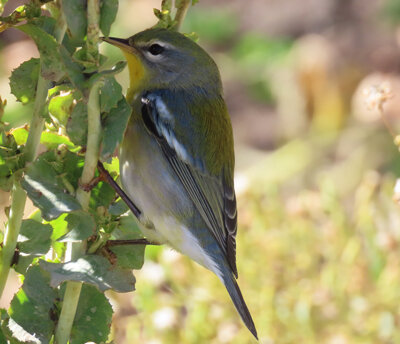
Photo courtesy Byron Greco
This week’s Bird of the Week, compliments of the Weminuche Audubon Society and Audubon Rockies, is the northern parula.
When this pretty bird showed up in an experienced birder’s garden in town, he knew that he was seeing something unusual. In fact, this bird is considered an eastern warbler and the October sighting was the first of a northern parula ever reported on ebird.org in Archuleta County.
From spring through fall, this woodwarbler is commonly found in the eastern part of the United States, with the far eastern part of Nebraska about as far west as it usually goes. An oddly shaped gap in this range which includes southern New England and the area around the Great Lakes is attributed to habitat loss and air pollution.
Northern parula typically build their nests by hollowing out a space in a hanging epiphyte like Spanish moss or usnea, both of which are highly sensitive to pollutants in air which inhibit their growth. These wood warblers prefer to nest in humid forests if clean air allows these hanging lichens and plants to thrive.
Like many of our summer warblers, this one is an active forager in the mid- to upper canopy layer of trees. It feeds on a variety of insects and spiders and is often seen fluttering on the branch tips where it feeds. In migration it is often found feeding in the understory, where it adds seeds and berries to its diet.
Tiny, dainty and delicate are adjectives used to describe this colorful bird. Adult birds have a blue-gray back with an olive-yellow patch in the middle. Males have a bright yellow breast and throat which is cut by a chestnut-colored band. Their eyes are outlined by heavy white crescents.
Vagrant birds are those like this one that turn up in places well outside their normal ranges. Storms contribute to these migration mistakes, but recent research points to disturbances in the Earth’s magnetic field as playing a major role.
For information on events, visit www.weminucheaudubon.org and www.facebook.com/weminucheaudubon/.